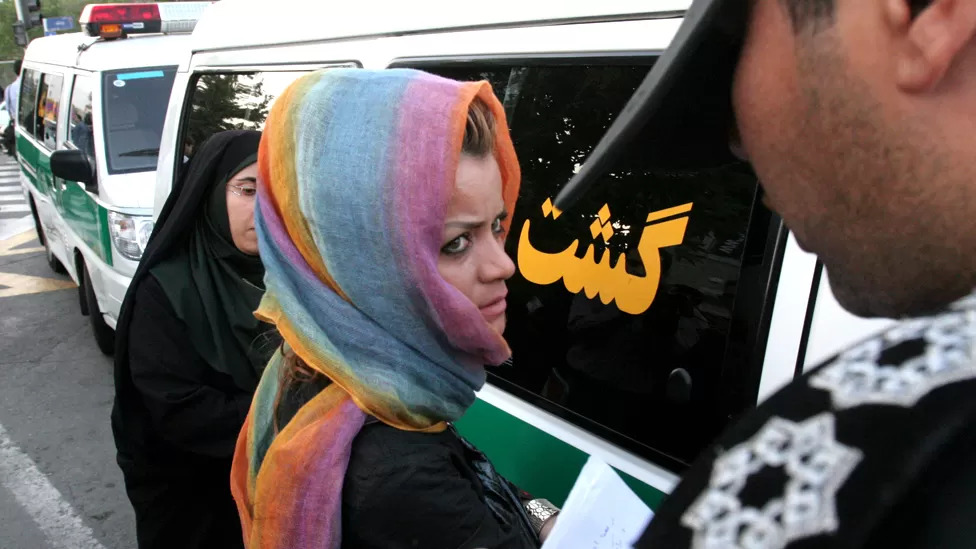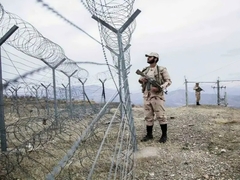Iran’s police chief, Ahmad Reza Radan, has insisted that enforcing compulsory hijab across the country using a “smart scheme” is “irreversible.” This statement comes after the re-launch of morality police patrols, which followed months of anti-regime unrest in the Islamic Republic.
“Everyone should know that this operation is well-intended, and we consider it irreversible,” Radan said on July 20, expressing gratitude to his officers for fulfilling their “religious and legal” responsibilities, as reported by Fars News Agency.
The smart scheme reportedly uses “artificial intelligence” to identify unveiled women in public.
The decision to reintroduce the “morality police” vans, responsible for enforcing mandatory hijab rules, was made 10 months after the tragic death of Mahsa Amini, a young woman who died in the custody of the same police force in September 2022. Her death triggered widespread unrest across the country.
On July 16, Iran’s Police Spokesman, Saeed Montazer ol-Mahdi, announced the commencement of patrols across the nation. The first step involves warning women to comply with the compulsory hijab. If they fail to obey the police orders, “legal action” will be taken, and the offenders will be referred to the judicial system.
Former Iranian reformist President, Mohammad Khatami, criticized the revival of the morality police, expressing concerns that the Islamic Republic is risking “overthrowing itself” with the decision because it would further increase tensions in society.
At the same time, hardline clerics in Iran are pushing for even stricter enforcement of the country’s dress code for women, as an increasing number of Iranian women have been appearing in public without wearing a headscarf. This has resulted in the detention of four individuals by the Tehran Intelligence Police on July 19 for allegedly “desecrating” religious sanctities by posing without a hijab outside a mourning site.
The arrests coincided with Iran’s ruling regime organizing nationwide mourning ceremonies to commemorate the month of Muharram and pay homage to the third Imam, Hussain, and his followers who lost their lives in the historic battle of Karbala over 1,300 years ago.
In addition to the arrests, Iranian courts have handed down prison sentences to two prominent actresses for violating the mandatory Islamic headscarf or hijab rule. Actress Afsaneh Bayegan’s lawyer, Hoda Kohian, revealed that she has been sentenced to two years in prison, with a five-year suspension. Bayegan faced accusations of “removing the hijab” and “disturbing the public mind” after she appeared at a public event in May wearing a hat instead of a headscarf, in a show of solidarity with nationwide protests.
Similarly, actress Leila Bolukat received a one-year jail sentence on July 18, and she is slated to serve her sentence at a Semnan Province prison.







 Kyrgyzstan has joined the extensive reconstruction efforts in the Karabakh region of Azerbaijan, after a series of mega initiatives were launched b...
Kyrgyzstan has joined the extensive reconstruction efforts in the Karabakh region of Azerbaijan, after a series of mega initiatives were launched b...
 Turkmen President Serdar Berdimuhamedow and British Secretary of State for Foreign Affairs, Commonwealth Affairs, and Development David Cameron dis...
Turkmen President Serdar Berdimuhamedow and British Secretary of State for Foreign Affairs, Commonwealth Affairs, and Development David Cameron dis...
 A draft resolution aimed at preventing the development and deployment of weapons of mass destruction (WMDs) in outer space, co-sponsored by Japan a...
A draft resolution aimed at preventing the development and deployment of weapons of mass destruction (WMDs) in outer space, co-sponsored by Japan a...
 Russia and Ukraine have engaged in direct negotiations facilitated by Qatar to address the exchange of children affected by the ongoing conflict.
Russia and Ukraine have engaged in direct negotiations facilitated by Qatar to address the exchange of children affected by the ongoing conflict.



